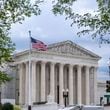Outspoken Dallas Mavericks owner Mark Cuban once predicted that the NFL would lose popularity because it televised too many games on too many nights of the week.
“Pigs get fat, hogs get slaughtered,” Cuban said in March 2014, soon after the NFL announced an expanded television package. “When you try to take it too far, people turn the other way. I’m just telling you, when you’ve got a good thing and you get greedy, it always, always, always, always, always turns on you. That’s rule No. 1 of business.”
It seemed unlikely that the NFL could ever give consumers too much televised football.
The league has long have enjoyed the strongest ratings in television, even managing to increase them as other types of programming saw dramatic declines. The NFL’s popularity seemed unaffected by several off-field controversies involving its players, owners and commissioner Roger Goodell.
But not this fall. The NFL is experiencing a sharp decline in ratings this season. Could it turn out that Cuban was right after all?
TV ratings for NFL games declined by about 14 percent through the first five weeks of the season with a particularly large drop-off for prime-time games. Bad publicity about the ratings prompted two league executives to send an internal memo on Oct. 6 seeking to reassure a committee of owners that the NFL remains “the most powerful programming on television.”
The executives blamed the poor ratings on interest in the presidential election; the memo cited exploding ratings for cable news channels. They also said prime-time games this year have not been as appealing as those in years past.
Not mentioned in the memo are issues that could signal long-term trouble for the league. Perhaps chief among them is the changing viewing habits of consumers.
“There has been a fundamental shift over the last several years in how sports fans consume content and the leagues and their media partners have been relatively slow to adapt to these consumer preferences and demands,” David Carter, an associate professor at the University of Southern California’s Marshall School of Business, wrote in an emailed response. “While it is not unusual for big businesses to move more slowly supplying what consumers demand, it appears to be picking up the pace given how quickly media platforms are evolving.”
Getting access to all NFL games on cable or satellite usually requires paying extra for a sports package. The league limits online streaming of most of its games to consumers who pay extra for subscriptions. (It recently began streaming Thursday night games via Twitter.) Only one mobile carrier streams games and that’s limited to local Sunday and prime-time games.
The NFL may be losing out as “cord cutters” balk at paying for cable and satellite packages that include its games. According to Nielsen data, ESPN has lost about 10 million subscribers since 2013, including 1.5 million from February through May of this year.
The NFL is hoping ratings return to normal when the election is over.
The Sept. 26 game between the Falcons and Saints aired opposite the first presidential debate and earned the lowest national rating in the history of Monday Night Football. The debate set a record with 84 million viewers over 13 TV channels.
The Week 5 Giants-Packers game aired opposite the second presidential debate and fared better but still drew the lowest rating in three years for Sunday Night Football.
The league’s internal memo about the poor ratings said the NFL saw “no evidence” that they are related to 49ers quarterback Colin Kaepernick’s social protests. Kaepernick has declined to stand during the pregame national anthem in what he says is a protest against police brutality and the unfair treatment of minorities nation-wide. Other NFL players have joined him.
A Reuters/Ipsos poll released on Sept. 14 found that 61 percent of Americans don’t agree with Kaepernick’s protest and 72 percent said his actions make him “unpatriotic.” However, 64 percent of poll respondents said they believed Kaepernick had the constitutional right to protest and 46 percent said the NFL should not penalize him for it.
Michael Lewis, an associate professor of marketing at Emory University’s Goizueta Business School, said more detailed data is needed to determine how the anthem controversy has affected the NFL’s popularity. But Lewis theorizes that even if the impact of that issue is minimal, there could be a “cumulative effect” from many off-field controversies in recent years and the NFL’s response to them.
Among the issues that caused the NFL to face public backlash are the league’s playing down of concussions frequency suffered by players; the four-game suspension of Patriots quarterback Tom Brady for deflating footballs versus lighter discipline to players for misconduct that includes domestic violence; and franchises relocating (or threatening to do so) as leverage to extract tax money for private stadiums.
Lewis said fans who are angered by Kaepernick’s protest might also be upset at the NFL for failing to discipline him for it while cracking down on players for things like uniform violations and touchdown celebrations. Goodell has said there is no rule requiring players to stand for the anthem and expressed his support for their right to protest.
Lewis said some people could view the NFL’s stance as a “brand-implicit endorsement” of Kaepernick’s protest.
“I think this one is potentially worse than the other (controversies) because it’s kind of hitting on a cultural issue with one segment of fans versus another segment of fans,” Lewis said. “In a lot of ways, as a marketing guy, I don’t know what the NFL does with this one. I think trying to shut the protest down is almost like throwing a match on some gasoline.”
It is also possible that bad football has hurt the NFL’s image more than the off-field controversies.
Thursday and Monday nights have featured weak teams playing unsightly games. Sunday night games that typically feature the best matchups have been sullied by missing marquee quarterbacks either due to retirement (Peyton Manning), suspension (Brady) or injuries (Tony Romo).
Also, games are becoming longer. The Associated Press reported that games in 2015 ran longer than ever at nearly three hours and 10 minutes, citing the main cause as added television timeouts that begin during replay reviews by game officials.
Finally, there is often confusion surrounding what appear to be arbitrary interpretation and application of many rules. Those include personal fouls for targeting and what exactly constitutes a legal catch.
However, Emory’s Lewis said he’s skeptical that a few bad games or controversial calls explains the rating decline.
“That’s one of those things that is a real hard thing to quantify,” he said. “I suspect it might be a matter of the NFL being on top for so long, people just get a little tired of it.”
About the Author






